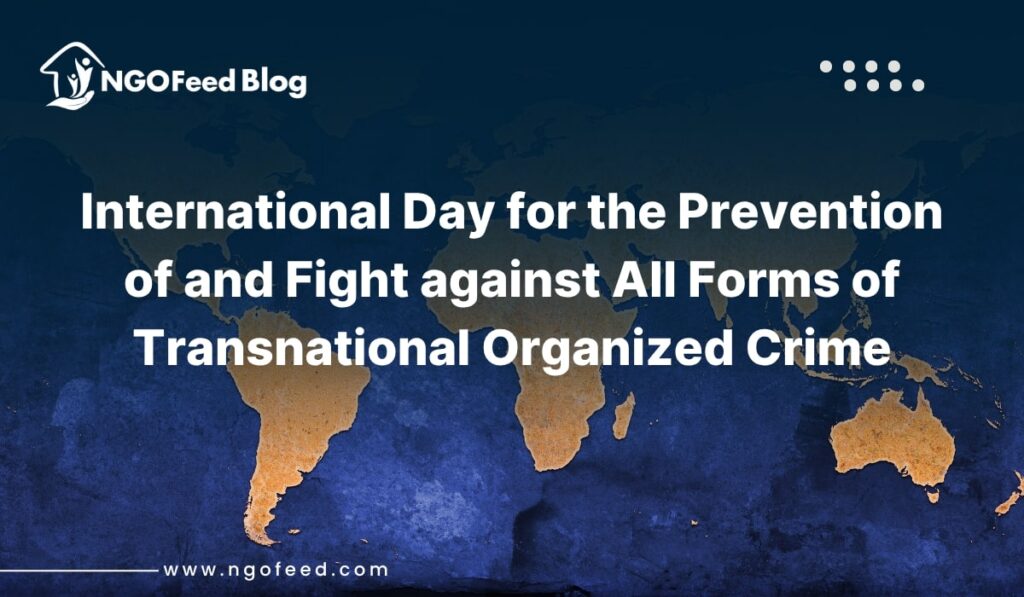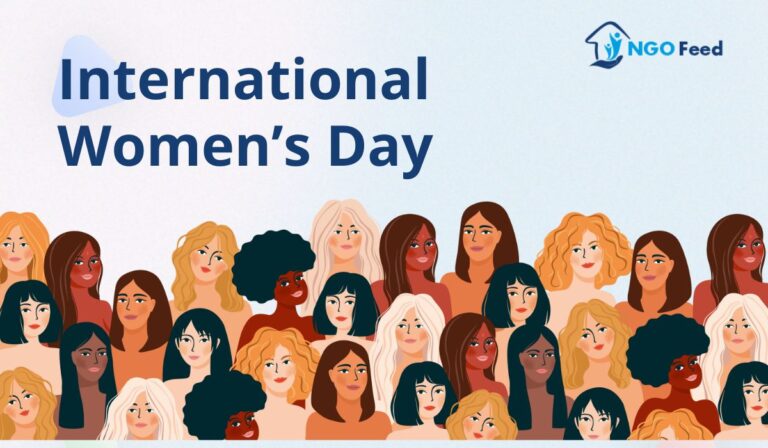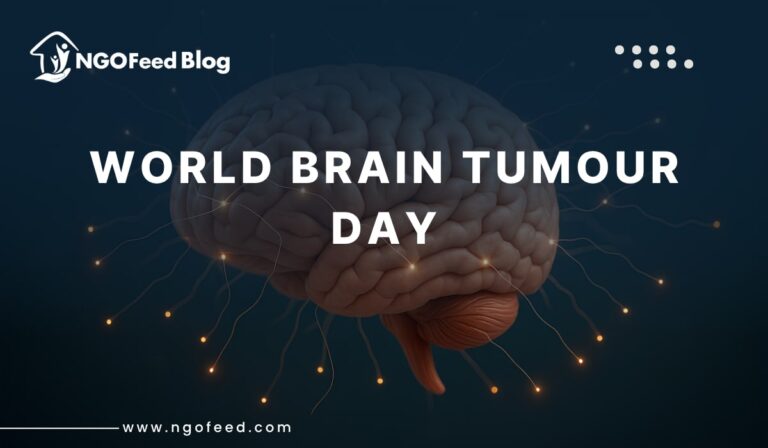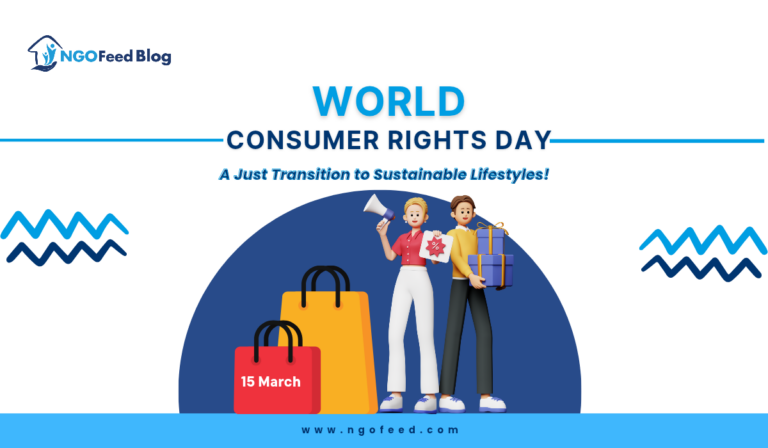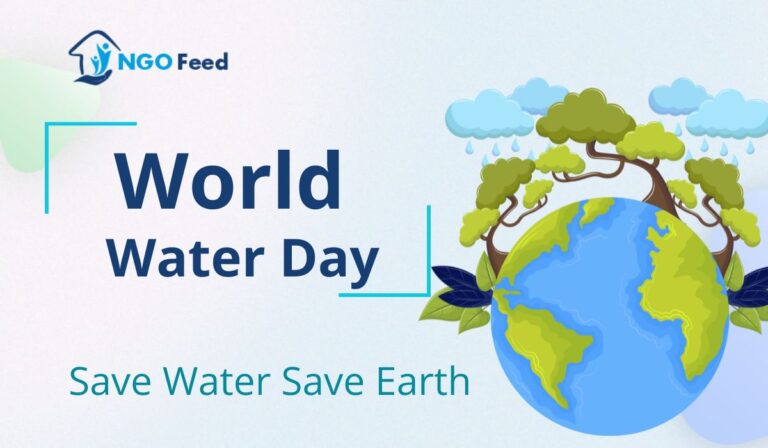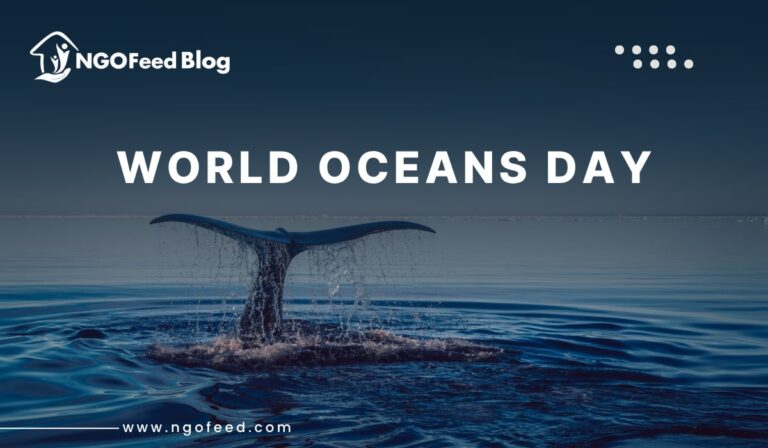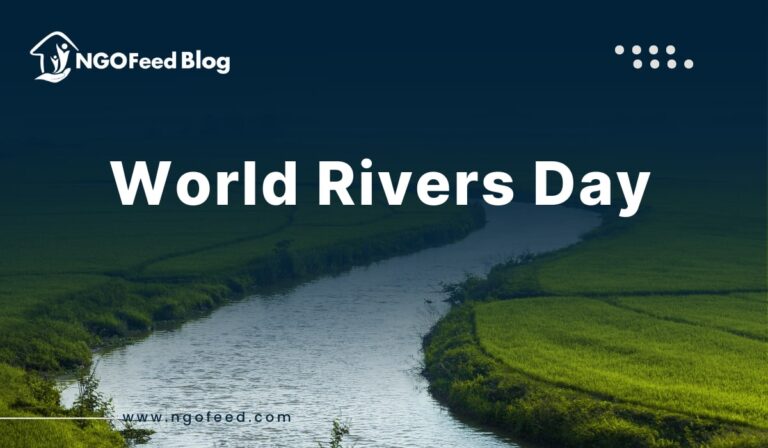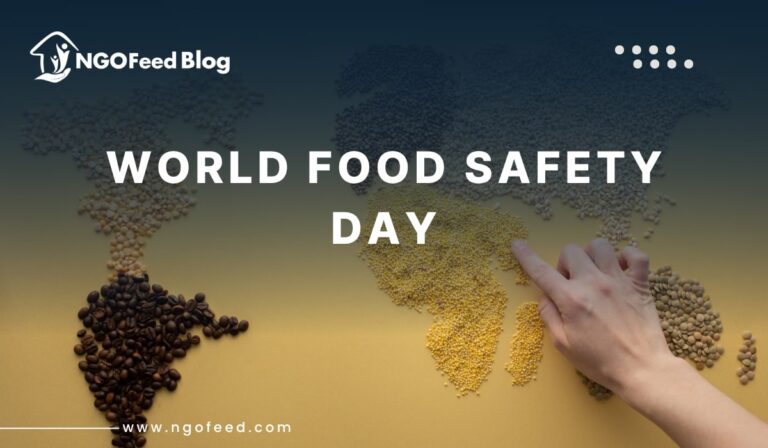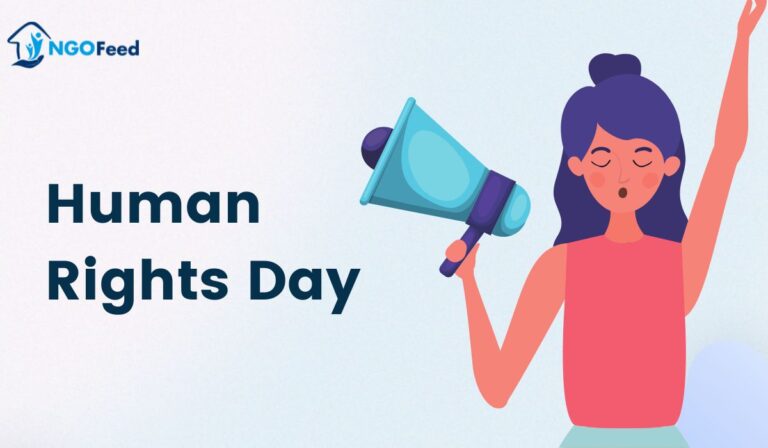International Day for the Prevention of and Fight against All Forms of Transnational Organized Crime 2025: Celebrated annually on 15 November, the International Day for the Prevention of and Fight against All Forms of Transnational Organized Crime acts as a worldwide call to action against crimes that cross borders and compromise human rights, security, and peace.
Emphasizing the pressing need of global collaboration, ethical governance, and citizen participation in destroying criminal networks that use globalization, technology, and economic weaknesses, this observance also notes.
From human trafficking and cybers fraud to wildlife poaching and money laundering, organized crime has developed into a sophisticated and far-reaching danger. The observance day therefore reminds countries of their shared responsibility to maintain justice, openness, and the rule of law as well as to be symbols of unity.
Table of Contents
What is the International Day for the Prevention of and Fight against All Forms of Transnational Organized Crime?
The day aims to raise awareness of transnational organized crime, which consists of planned unlawful activities carried out by structured groups across borders for profit or authority.
These offenses are linked worldwide schemes that threaten lives, destabilize governments, and harm economies rather than individual acts.
Among transnational organized crimes are:
- Human trafficking and smuggling
- Trafficking in arms and narcotics
- Cybercrime and identity theft
- Corruption and money laundering
- Unlawful environmental and wildlife commerce
- Financing of terrorism and organ trafficking
Observance encourages group action from enhancing international laws and networks of intelligence to enable local communities by means of awareness and prevention.
Also Read: WHO Vs UNICEF in Health Interventions
History
The origins of this celebration are in the United Nations Convention Against Transnational Organized Crime (UNTOC), sometimes referred to as the Palermo Convention, approved by the UN General Assembly, Palermo, Italy, November 15, 2000.
Three main protocols were established by this historic agreement to advance global collaboration against organized crime:
- Protocol to Prevent, Suppress and Punish Trafficking in Persons, Especially Women and Children
- Protocol against the Land, Sea, and Air Smuggling of Migrants
- Protocol Against the Illegal Manufacturing and Trafficking in Guns
This day celebrates this worldwide promise to combat transnational crime, acknowledging that conquering criminal organizations running beyond boundaries depends on legal, social, and technological combined efforts.
International Day for the Prevention of and Fight against All Forms of Transnational Organized Crime 2025 Theme
Every year, the celebration centers on a major theme that reflects current concerns and priorities.
Emphasizing the expected 2025 theme, “Global Cooperation for a Safer World: Strengthening Unity Against Transnational Organized Crime,” is:
- Sharing cross-border intelligence is accelerated.
- Constructing cyber resilience against cyber attacks.
- Defense of vulnerable group,s including women, children, and refugees.
- Promoting international sustainable law enforcement collaborations.
The theme underlines that no nation can go alone; global unity is the best weapon against organized crime.
Also Read: Role of Education Minister in Universal Education Goals – UN
Aims and Targets
The purpose of the observing is to:
- In order to stop organized crimes, spread international solidarity and coordination.
- Improve enforcement mechanisms and national legal systems.
- Make sure that politicians, teachers, and people understand the effects of international crimes.
- Ensure human rights-based strategies in anti-crime activities and protect victims.
- Promote data-driven studies and careful application of technology in law enforcement.
- Encourage collaboration among government, NGOs, and the corporate sector to build transparent, safer society.
The final objective is to foster a culture of lawfulness whereby justice, ethics, and responsibility overcome greed and corruption.
Why It’s Significant?
One of the most serious hazards to world stability and sustainable development is transnational organized crime. Its influence is great:
- Billions of dollars are lost yearly from money laundering, fraud, and unlawful trade.
- Human trafficking and forced labor ruin communities and people through social exploitation.
- Environmental Effect: Illegal mining, logging, and wildlife trafficking permanently harm the ecosystem.
- Political corruption: Networks of criminal’s infiltrate governments, hence destroying democracy.
- Technological Danger: Cybercrime degrades data privacy and digital systems’ integrity.
Also Read: Role of World Food Programme in Addressing Hunger
How to Celebrate International Day for the Prevention of and Fight against All Forms of Transnational Organized Crime?
Through:
- Spreading information, survivor stories, and infographics on social media via Awareness Campaigns.
- Cross-border crime prevention and worldwide justice panel events.
- Through workshops and storytelling, young people and underprivileged groups are reached.
- Highlighting the human and environmental expense of organized crime via film screenings or exhibits.
- Plan Encouragement of anti-crime legislative and governance changes in dialogues
- Digital Security Drives: Informing residents about cybercrime prevention and online security.
- Every little awareness helps to drive a bigger movement for justice and openness.
Activities
Among the regular local and worldwide activities are:
- Events organized by UNODC including experts, diplomats, and survivors of trafficking.
- Educational programs for law enforcement meant to improve investigative skills.
- Projects for data sharing across nations to monitor cross-border activity.
- Youth and school initiatives highlighting moral education, digital ethics, and human rights.
- Collaborative NGO initiatives include “#EndOrganizedCrime” and “#HumanityAgainstTrafficking.”
- Media partnerships to raise attention to investigative reporting on crime networks and corruption.
- Such events aid in spreading the message that prevention starts with awareness.
Also Read: Role of the World Bank in Poverty Alleviation
Role and Issues of NGOs
Role of non-profit organizations
- Advocacy: NGOs push for more open enforcement and tighter rules.
- Victim Assistance: They offer legal help, counseling, vocational training, and shelters.
- Awareness: NGOs run social and educational campaigns to educate people on crimes and reporting channels.
- Coordination Barriers: NGOs frequently function as bridges between international organizations, law enforcement, and local groups.
- Research and Documentation: Critical information and records that affect policy changes are collected.
Despite these obstacles, NGOs remain the moral conscience and grassroots defenders in the global war against organized crime.
Conclusion
More than just a symbolic commemoration, the International Day for the Prevention of and Fight Against All Forms of Transnational Organized Crime is a reiteration. of the will of mankind to support justice, guard dignity, and advance worldwide peace. Our reaction must develop with equal power, solidarity, and invention as organized crime becomes more sophisticated in the digital era. Governments, NGOs, and people must work together to guarantee that compassion, justice, and responsibility always surpass corruption and greed. Global cooperation and moral fortitude rather than isolation define the way to a better environment.
Also Read: How NGOs Are Using Theatre for Gender Sensitisation in Rural Areas
Frequently Asked Questions (FAQs)
1. Why is 15 November observed as this international day?
Because it commemorates the adoption of the UN Convention against Transnational Organized Crime (2000), which established global cooperation against criminal networks.
2. What are the main forms of transnational organized crime?
Human trafficking, drug smuggling, cybercrime, arms trafficking, environmental crimes, and money laundering.
3. Which organization leads global efforts against organized crime?
The United Nations Office on Drugs and Crime (UNODC) coordinates worldwide initiatives and supports member nations through research, policy development, and capacity building.
4. How can NGOs participate in this day?
By hosting awareness campaigns, assisting victims, conducting community workshops, and collaborating with international agencies for crime prevention programs.
5. What can individuals do to contribute?
Stay informed, report suspicious activities, promote digital safety, and support transparency and anti-corruption movements.

